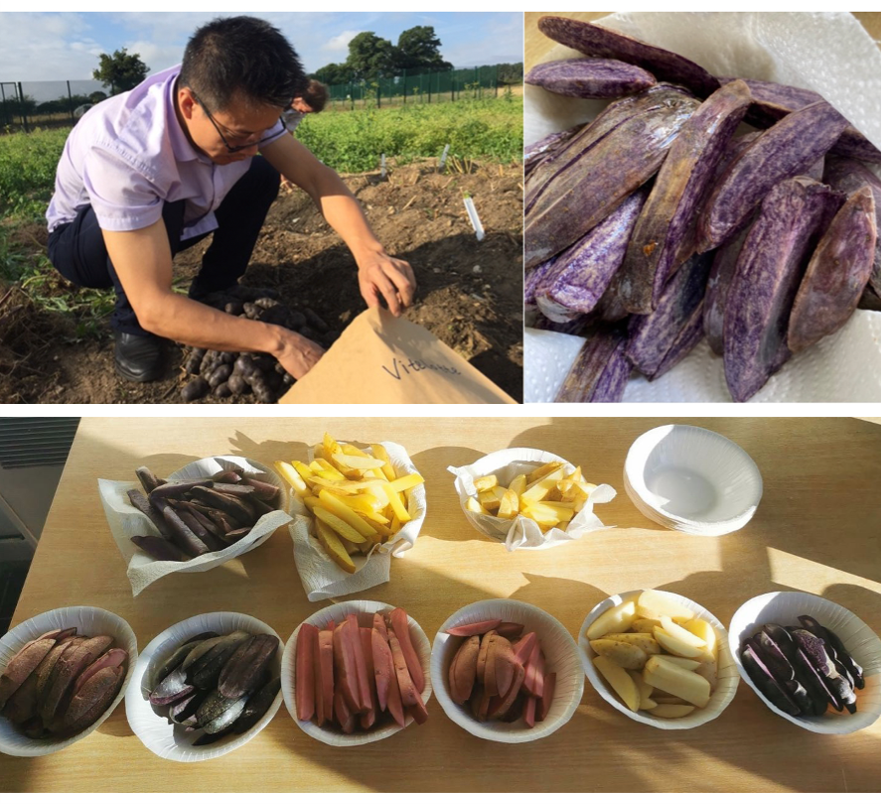As a part of the first EDESIA cohort, I undertook three rotation projects in the UEA Norwich Medical School, the Quadram Institute, and the John Innes Centre.
In addition, I have attended a constellation of training programmes on topics that included food business market value chains, human nutrition, and hardcore bioinformatics. The journal club was one of the most rewarding experiences for me, as well as the rotation review meetings. The rotation scheme was invaluable for me, where I learned new experimental and communication skills which helped me to identify my strengths and limitations. Most importantly, the rotation experience enabled me to select with confidence the topic for my full PhD project.
My third rotation project (as well as my full PhD project) aimed to investigate how the consumption of coloured potatoes containing anthocyanins might contribute to gut and brain health. My long-term objective is to gain in-depth insights into the mechanisms by which anthocyanin-enriched foods benefit health, especially their efficacy in protecting against chronic disease and/or in enhancing mood and memory. During my rotation, I found that coloured potatoes show different responses to Rapid Visco Analysis (RVA) compared to white potatoes. RVA provides an indirect measurement of starch viscosity that mimics the effects of cooking on starch. I am keen to investigate whether anthocyanins can behave like proanthocyanidins (PAs) to improve the resistance of starch. PAs can be added to maize starch, to increase its resistance to digestibility, to control postprandial hypoglycaemia for Type 2 diabetic patients. I had so much fun making different coloured potato chips at the JIC with the support from the lab and designing a questionnaire about their taste. My full PhD project is built on extensive collaborations with experts from the John Innes Centre, Norwich Medical School and the Quadram Institute. I hope my research enables me to provide evidence-based recommendations for diets to relieve the socioeconomic burden of unhealthy ageing.

:focus(258x109:259x110))